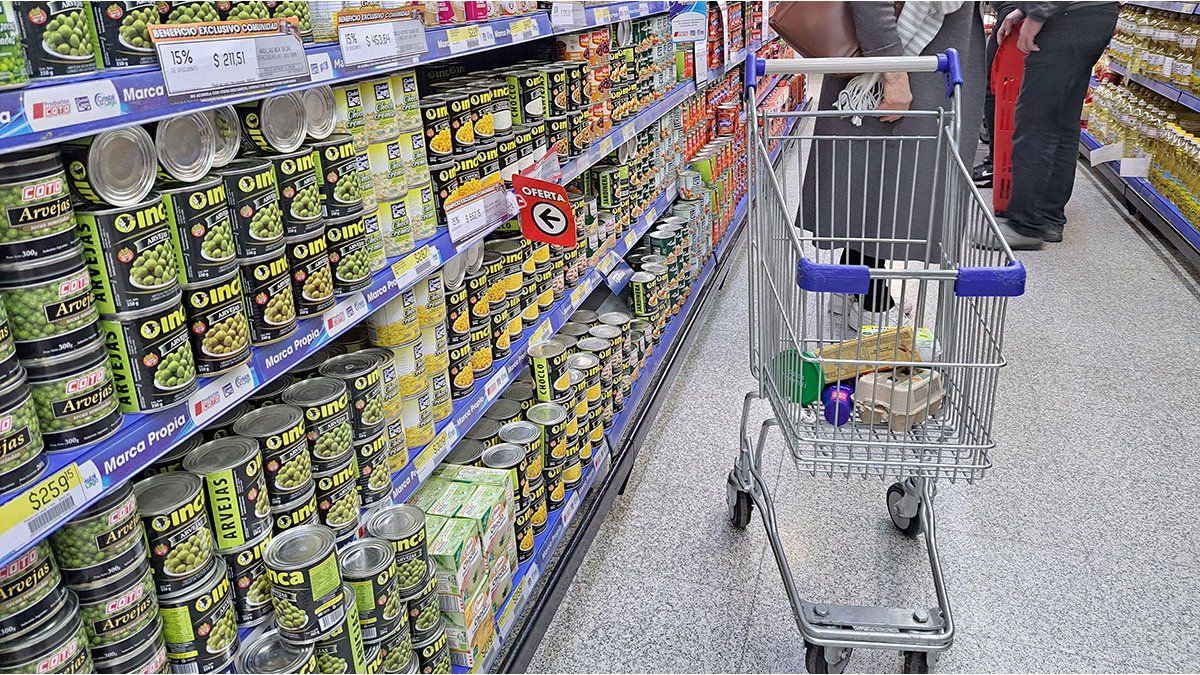The effect would also “help” elections: due to the high uncertaintymany consumers decide to advance purchases to prevent possible increases, which in turn drives consumption levels.
So it is presumed that the data for October and November would also continue with a positive sign, although for the medium and long term the perspectives could changedue to a possible new acceleration in inflation and the consequent loss of purchasing power of salaries.
According to INDEC data, In August, sales in supermarkets increased by 5.2% year-on-year, to accumulate an improvement of 1.3% in the first eight months of the year. Meanwhile, in the wholesale self-services the increase was 11.4% year-on-yearto add an increase of 2.9% in the accumulated.
For its part, according to data from the consulting firm Scentia, “self service” showed a positive variation in September of 8.5% compared to the same month in 2022, to accumulate an improvement of 1.5% in the first nine months of the year. Supermarkets grew 12.6% year-on-year and accumulated an improvement of 8.7% in the year; while local self-service stores recovered that month and showed an increase of 4.5%.
This trend could continue, at least, in October and November. This was estimated by a study of the “Argentine self-service, wholesale and supermarket market”, developed by Claves Información Competitiva. The report concluded that the measures of “Fiscal stimulus applied by the Government could boost sales in the sector in the short term.”
After the devaluation of the official exchange rate in August, The Government established a series of measures to alleviate the effects on purchasing power and sustain private consumption: were awarded fixed sums announced for retirees and pensioners, monotributistas, beneficiaries of the Feed and Empower Work card and workers in the private and public sectors, added to the announcement of a new “IFE” for informal workers. Other measures were added to this, such as the decision to refund VAT and eliminate Income Tax.
“In the first nine months of the year, consumption is in positive territory. Possibly, these measures can also help maintain it in this regard. With the data from October it will be possible to see for sure how it impacted,” they explained to Ambit from the consulting firm Scentia.
For his part, Damián Di Pace, director of the consulting firm Focus Market, said: “There is a situation of elimination or reduction of taxes for certain sectors, with a fiscal expansion and a credit expansion. With which, In the short term, that will temper the decline in sales”.
“And, in a context of uncertainty prior to the elections, there is a drop in demand for pesos: Argentines exchange pesos for goods and are advancing purchases. This was recorded in October, prior to the general elections and will be recorded again prior to the runoff. So, sales are driven by uncertainty, coupled with fiscal expansion and a credit expansion.
What to expect in the future
Beyond the short-term forecasts, with consumption behaviors that can be reflected in the October and November indicators, “In the medium term, the outlook is not favorable, given that the economy’s salary is estimated to continue declining in real terms.”.
This was estimated by the Claves firm, and they detailed: “In the current context of lack of dollars, the economy’s internal spending (total consumption and public spending) must be reduced so that the exportable balance increases, and international reserves begin to accumulate to stabilize the economy.. That is, there is no room for domestic spending and salaries to grow above inflation and the dollar.”
“At the same time, in a context of exchange rate uncertainty and growing expectations of devaluation, consumer and business confidence will remain limited. In this way, consumers and investors will continue to postpone some consumption and investment decisions, limiting the expansion of spending and employment,” the study highlighted.
And he concluded that “the high macroeconomic volatility and the low growth of the economy in general affect the demand of the sector”: “In this sense, the structural deterioration of real wages prevents domestic consumption from being consolidated.”
Source: Ambito




